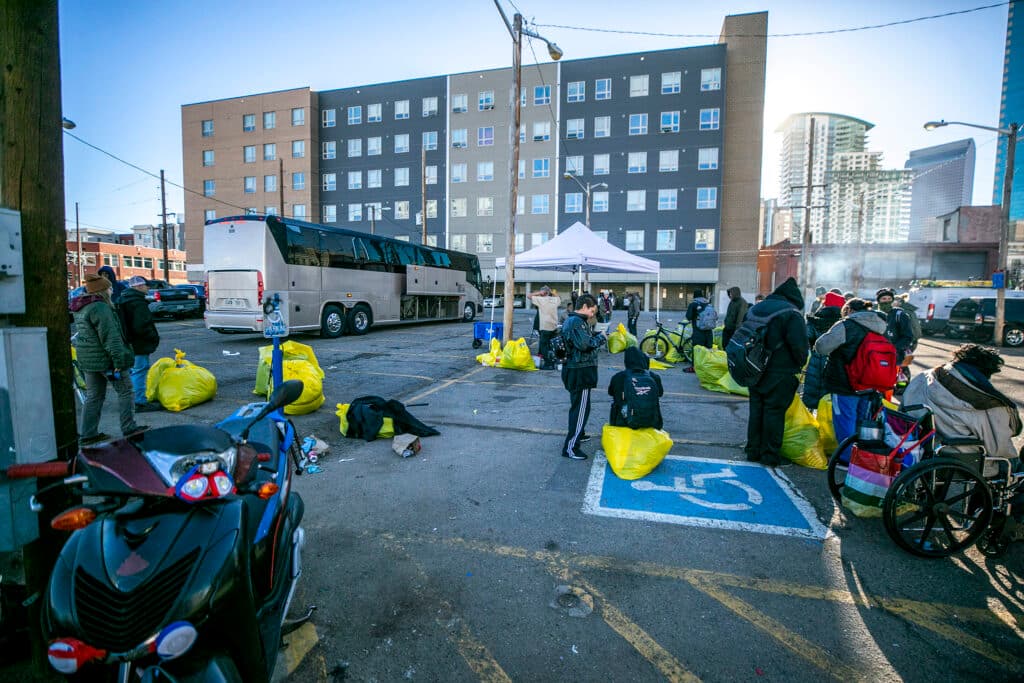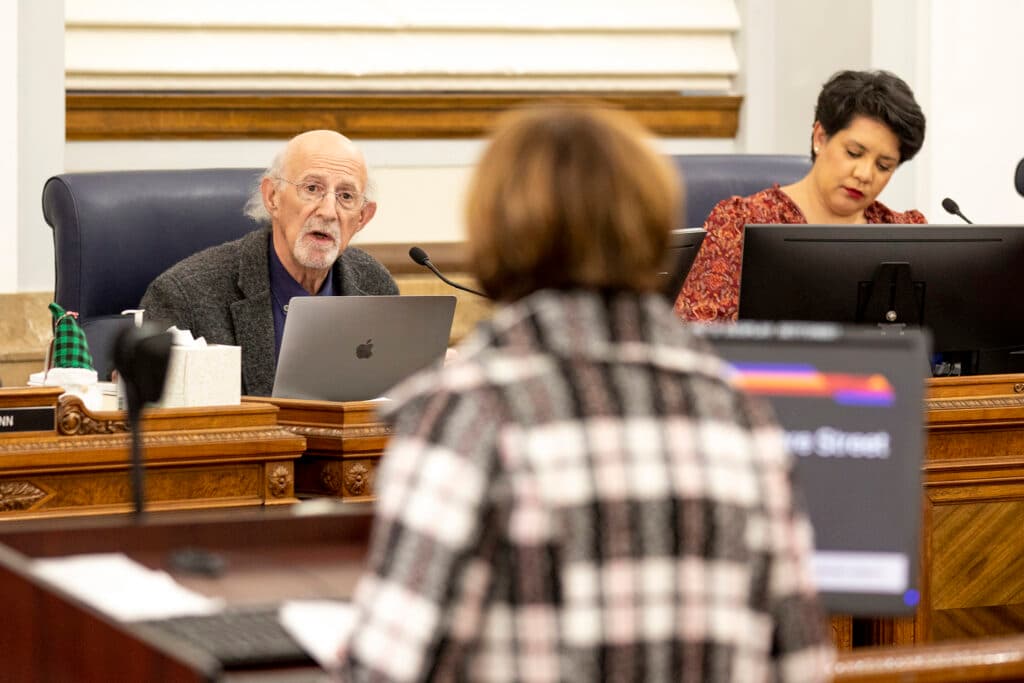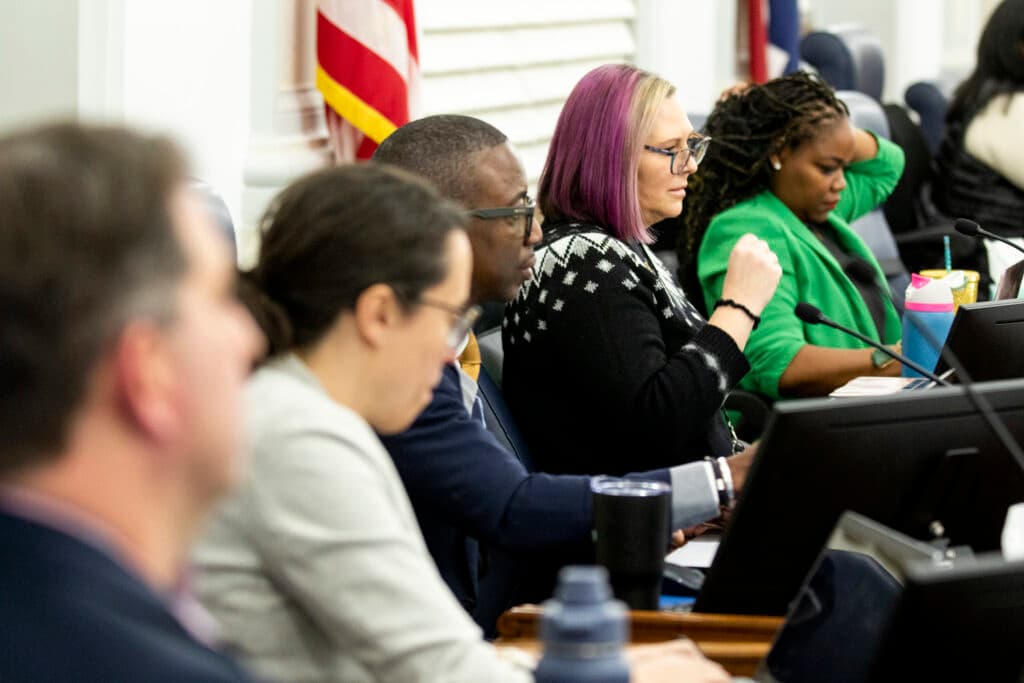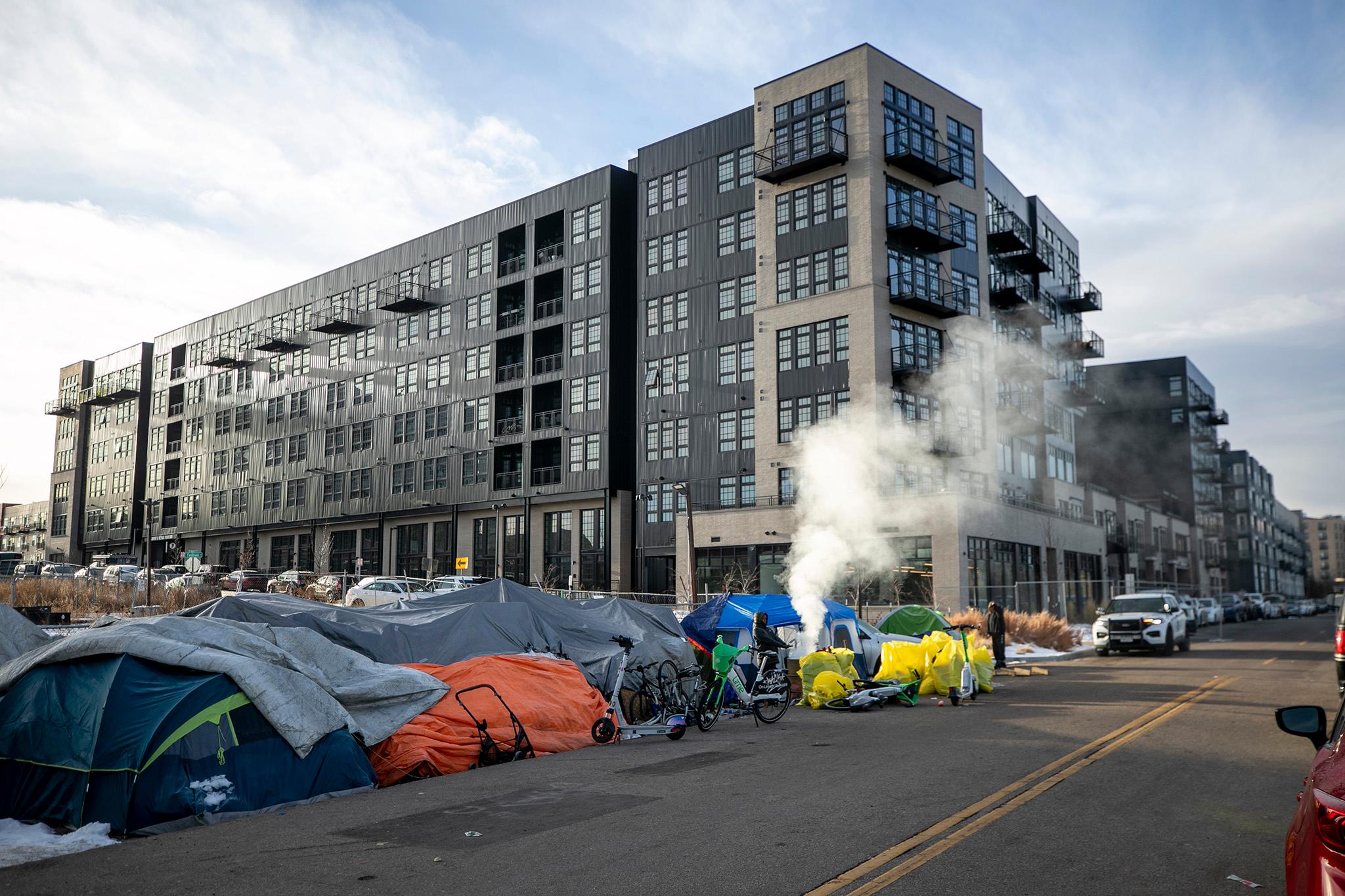A proposed funding contract to help move unhoused people directly into permanent housing passed through a Denver City Council committee.
But questions remain on its sustainability and overall budget concerns.
The Safety and Housing committee approved Wednesday the $5 million contract between Denver and Housing Connector, a nonprofit that helps connect people experiencing homelessness and service providers to property owners.
The proposed contract is part of the city’s rapid rehousing strategy within All In Mile High, the mayor’s rebranded homelessness initiative.
“Street to Lease” is a rapid rehousing program that looks to skip the transitional housing phase and instead move people from encampments directly into permanent housing.
The plan is to work with smaller encampments in less centralized areas of the city, said Cole Chandler, the senior advisor for homelessness resolution.
Through the proposed contract, Housing Connector will perform housing navigation and leasing coordination to about 250 households over two years.
How does Housing Connector work?
Housing Connector uses Zillow to find vacant units and build relationships with property owners. Through those relationships, the nonprofit can work with landlords on rental requirements, bypassing qualifications such as credit checks that systemically hold back would-be renters.
The nonprofit would also handle the distribution of move-in funds and rental assistance. Each person within the “Street to Leasing” program will receive one year of rental and utility assistance. Housing Connector will also provide insurance on the units if necessary.

“Through [Housing Connector’s] relationships with landlords, they're able to really be a strong liaison and if there's challenges that are coming up with an individual in the housing unit, they're able to work through those with the landlord in order to help preserve the person in the housing unit,” Chandler said.
The final part of the contract will focus on providing wraparound services and case management. With the help of the Department of Housing and Stability, along with the Colorado Coalition for the Homeless, participants will receive mental and physical health care, peer navigation, workforce training, behavioral health and substance misuse support and more housing navigation.
Ultimately, the goal of the program is to provide a path toward stability.

“What happens through rapid rehousing is that we encounter somebody on their very worst day,” Chandler said. “They're living in an encampment on the street. Their degree of stability is extremely low. We bring them indoors, we provide stability, provide case management. Over time, people are going to be able to increase their income. For some people, they're going to be able to get back to work and they'll be able to take over more and more of their rental payment.”
There’s also the option to apply for vouchers if that need arises, Chandler added.
The city ran a pilot of this program in April, working with an encampment of about 12 people. All 12 were placed into permanent housing.
Councilmembers had questions about the program, primarily its sustainability and funding
During the committee, councilmember Paul Kashmann asked whether the city will transition to utilizing this model of housing as opposed to first putting people in transitional housing.
Chandler said both housing methods are tools in getting people off the street but the rapid rehousing model does eliminate the costly efforts of transitional housing. The plan, eventually, is to scale up rapid rehousing efforts and decrease shelter usage.
However, both models are needed because ultimately some people aren’t ready to enter into permanent housing.

The funding for this program will come from American Rescue Plan Act, ARPA, dollars. About $4,250,350 of the proposed $5 million contract would be going toward rental assistance.
The funding is where the problem lies for Councilmembers Amanda Sawyer and Stacie Gilmore.
Sawyer said while the program may be successful, using ARPA dollars makes the program unstable because that funding mechanism is set to run out.
She added that this has been her issue with the mayor’s initiative since the onset. Sawyer pointed toward the current sheltering model. According to the All In dashboard, the city has moved almost 1,600 off the streets. About 300 people who never entered a shelter or micro-community have been placed into leased permanent housing.

Out of those who were in a shelter, about 45 people are currently in leased permanent housing but 165 people have returned to unsheltered homelessness and 47 people have an unknown status.
Sawyer said instead of “moving quickly,” declaring a state of emergency and funding programs with viable city dollars that have shown a low success rate, such as the sheltering model, the city could have invested in programs such as rapid rehousing that do work.
“You cannot have sustainable programs without a sustainable funding source. $5 million of ARPA funds for this for one round, that's great. ARPA is done. How are we going to pay for this after that,” Sawyer said. “If we had done our due diligence to begin with…we would be able to dedicate the real dollars and not temporary ARPA dollars to be able to support a really successful program that will actually make a difference in our city.”
Gilmore also took issue with the city using ARPA funding. She also again asked for a spending breakdown of the All In program.
Some councilmembers also wanted more transparency overall for All In Mile High.
In April, committee members received an update on the program that noted that not all of the funding budgeting for the program in 2023 was spent.
While the city still intends to spend that money, Gilmore asked for more transparency in where the dollars were going and where they were coming from.
During the committee meeting, Gilmore was told she’d have those numbers in May. Chandler said the city will now provide that breakdown in June.
Chandler added that the rapid rehousing program is something HOST has wanted to “deploy for some time.” He said the city is looking into the programs launched through All In and what are the one-time costs versus the recurring costs within the initiative.
It’ll be an ongoing conversation as the city evaluates contracts and performance, Chandler said.
“You are exactly right in your assessment that we are having critical conversations around what are we going to continue and what are we … are not,” Chandler said. “I think that this is a program that is worth investing in and is worth bringing into our community.”
The contract will go before the full council sometime in the coming weeks.














